Kitchen Confidential: The Case for Corbels
http://decor-ideas.org 09/01/2015 02:13 Decor Ideas
Corbels aren’t a new invention by any means, but the ways in which we incorporate these structural and decorative brackets into our kitchen designs are ever-evolving. In fact, corbels are one of the more versatile interior design tools available. Whether used as room dividers and countertop supports or as hard-hitting accent pieces and delectable details, there are no slim pickings when you’re designing your kitchen with corbels. Take a look at the full menu of options and make sure the heart of your home doesn’t miss a beat.
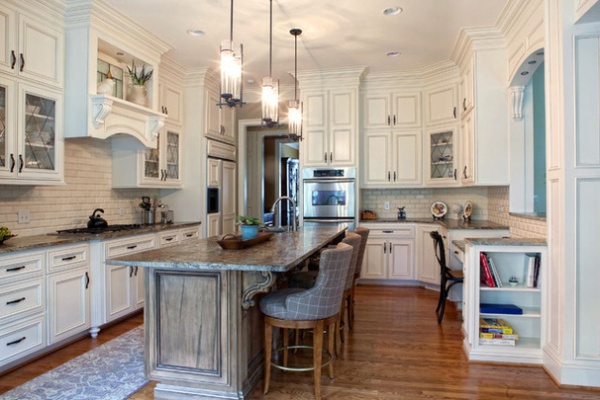
Types of Corbels
Wood. Hand-carved or premade wood corbels are commonly used in kitchens. They enhance the cabinet design when they match the finish of the cabinets.
Cabinets: custom, Walker Woodworking
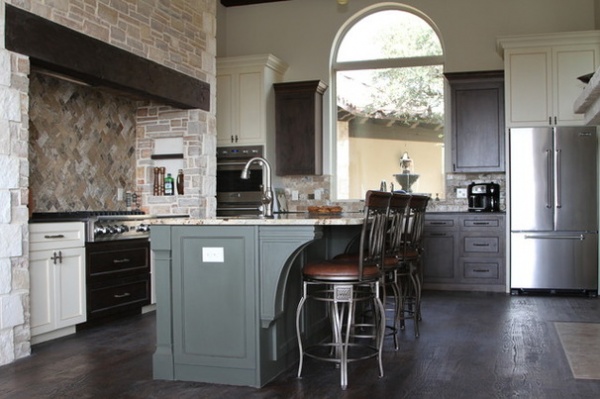
Mission style. Also known as Shaker style, these corbels are characterized by vertical lines and flat, recessed panels. Though they were originally influenced by design features found in late-18th- and early-19th-century Spanish missions in colonial California, they’re now more appropriate for contemporary design because of their relatively clean look.
Cabinets: custom, Unico Design Cabinetry
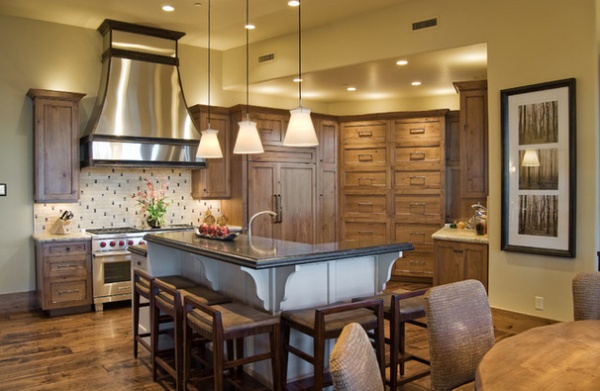
Curved. It’s all about curve appeal with contemporary corbels. Designers ditch the details and experiment with shapes to maintain a clean look.
Cabinets: custom, Highline Cabinets
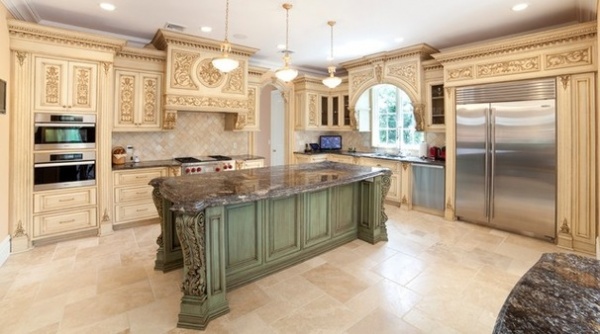
Acanthus leaf. These corbels recall classic Greek architecture and give your kitchen an authentic Mediterranean ambience. Needless to say, expect a sophisticated, time-honored look when they grace the ends of your island.
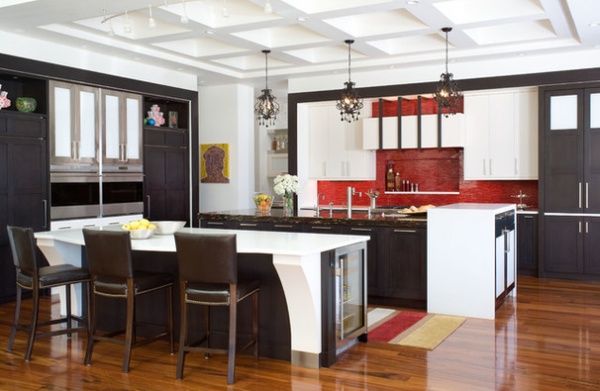
Modern. These corbels don’t have the detail you see in traditional and acanthus leaf corbels. Sleek, to-the-floor corbels can embolden your island design and have a seamless look all at once.
Backsplash: Red Hot Mama Satchmo Sticks, Artistic Tile
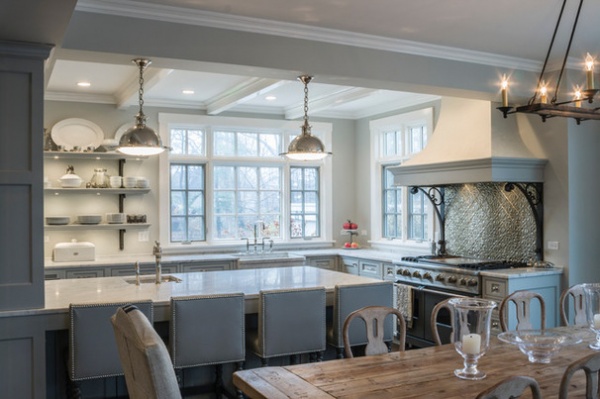
Wrought iron. These corbels are dynamic. It isn’t just the fact that they’re multipurpose pieces that provide both support and decoration. It’s also because of how versatile their look is. They’re raw enough to add edge to an industrial kitchen design. They have the curves and intricacies for Mediterranean and Spanish-style spaces. And in traditional designs, they’re just the brush of detail you need.
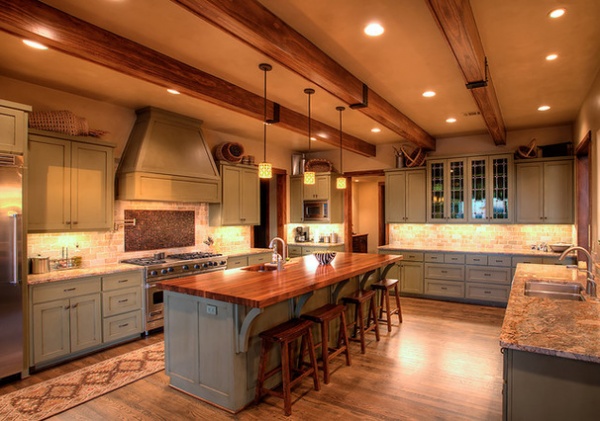
Where to Use Corbels
Kitchen islands. One of the main functions of corbels is to add detail. And if kitchens are the hub of the home, then islands are the hot spot for detail. Corbels are most often incorporated at the ends of the island or underneath a countertop overhang. Transform your island into a furniture-style piece by combining detailed corbels with wainscot panels and decorative legs.
This rustic eat-in kitchen has traditional wooden brackets supporting the island’s butcher block countertop. Using corbels in lieu of metal brackets is a good way to ensure that your island design stays decorative.
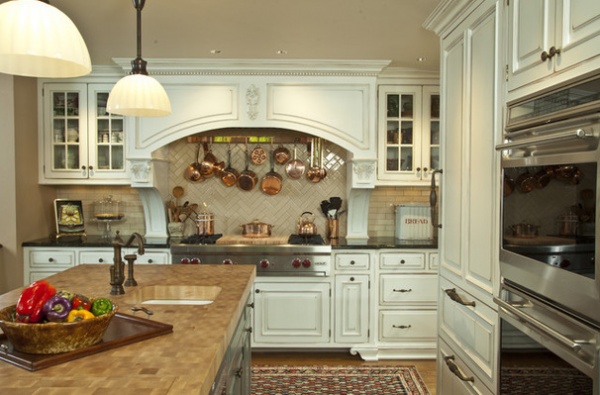
Vent hoods. If you want a standout stove area, use giant corbels underneath your kitchen hood to create the illusion of support. This draws attention to the design and gives it a larger-than-life presence in your kitchen.
Corbels: custom, Trish Namm, Kent Kitchen Works
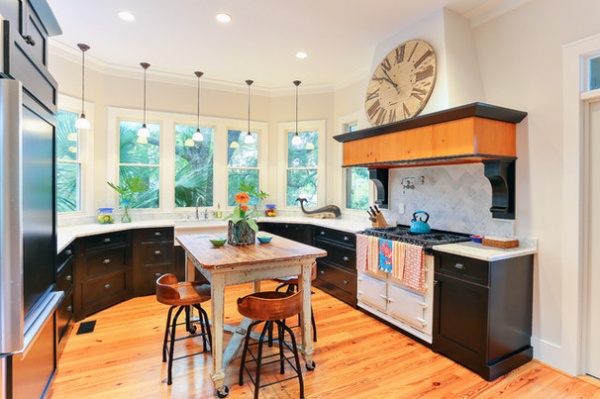
You don’t have to place large corbels underneath your kitchen hood to make a statement. Smaller corbels (along with an eye-catching vintage timepiece) can also move your kitchen hood to the limelight, as they do in this beachy-style San Francisco kitchen.
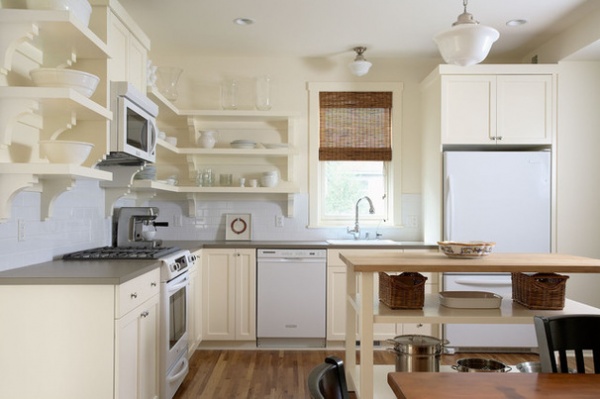
Shelves. The more practical side to corbels is the ability to support wall shelves. It’s how they’ve historically been used in architecture, after all. But the traditional corbels in this creamy, contemporary kitchen serve more than one purpose: They’re also a subtle decorative touch that adds dimension to an otherwise minimalist design.
Cabinet paint: Ivory White 925, Benjamin Moore
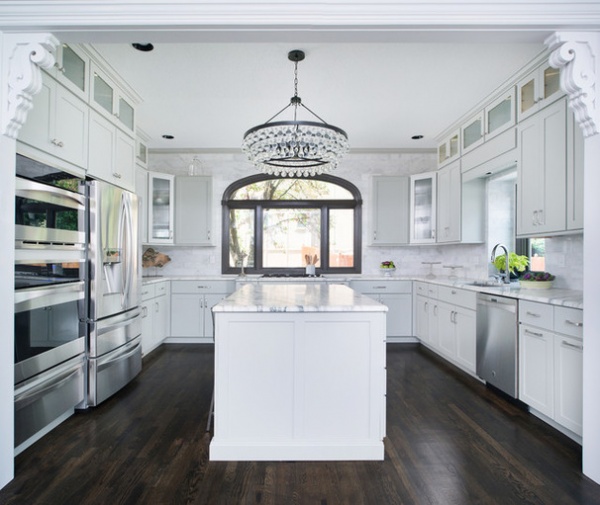
Room dividers. Doors and walls are traditional ways to separate rooms, but corbels are an alternative solution for creating barriers, especially in contemporary and modern kitchen designs. Mount corbels on the ceiling near your kitchen’s entrance to designate a boundary between it and the adjacent space.
Chandelier: Bling, Robert Abbey
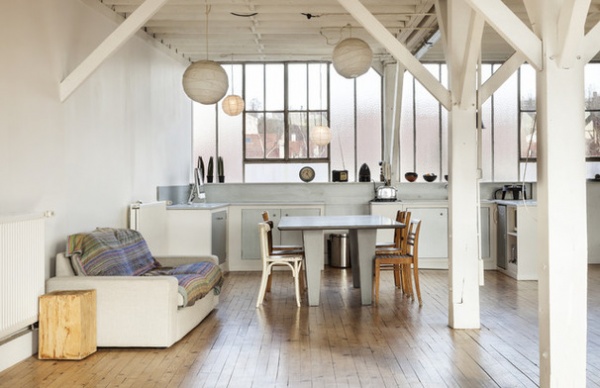
Ceilings. Here wooden ceiling corbels establish barely-there boundaries in an industrial open kitchen design.
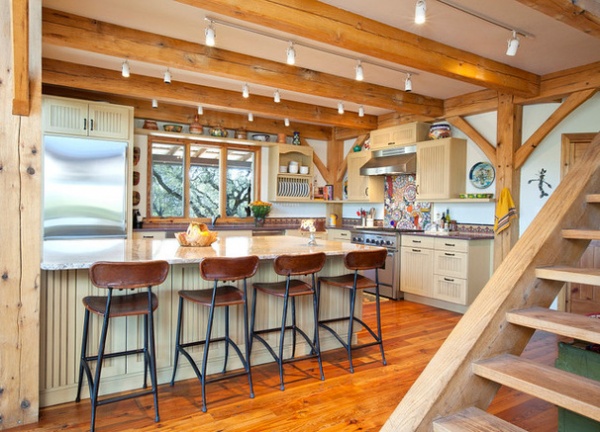
Ceiling corbels can also act as mood-setting pieces instead of room dividers. Large wooden bracket corbels scale the walls in this traditional Texas kitchen, recreating a vintage American farmhouse look.
Cabinets: custom, Wilson AC & Appliance
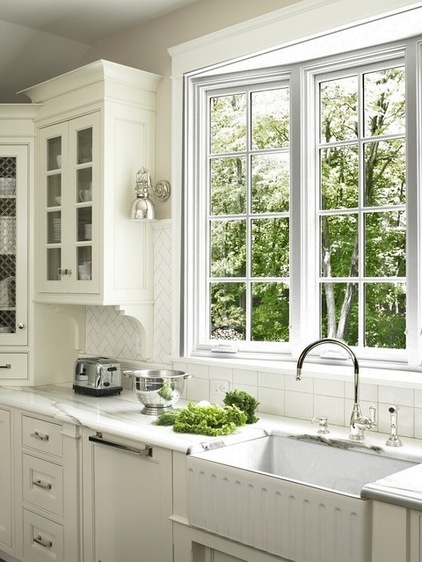
Upper cabinets. You can also accentuate one or more of your wall cabinets by putting corbels underneath them. Choose cabinets with glass-paned doors and matching end panels for a vintage furniture feel.
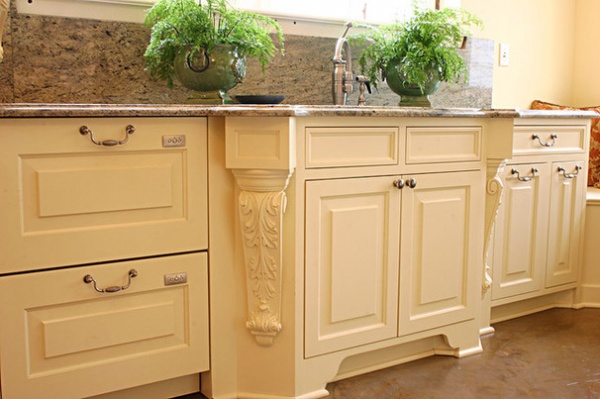
Lower cabinets. Like wall cabinets, you can make a base cabinet pop as well. The best way to do this is to increase the depth of one of your cabinets and put a corbel on each side in the filler space.
Cabinets: custom, Wood Works Fine Custom Cabinetry Inc.
More
Traditional Accents: Corbels for Flourish and Fun
How to Design a Kitchen Island
Related Articles Recommended












